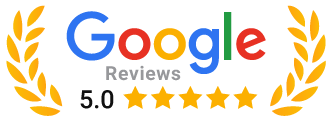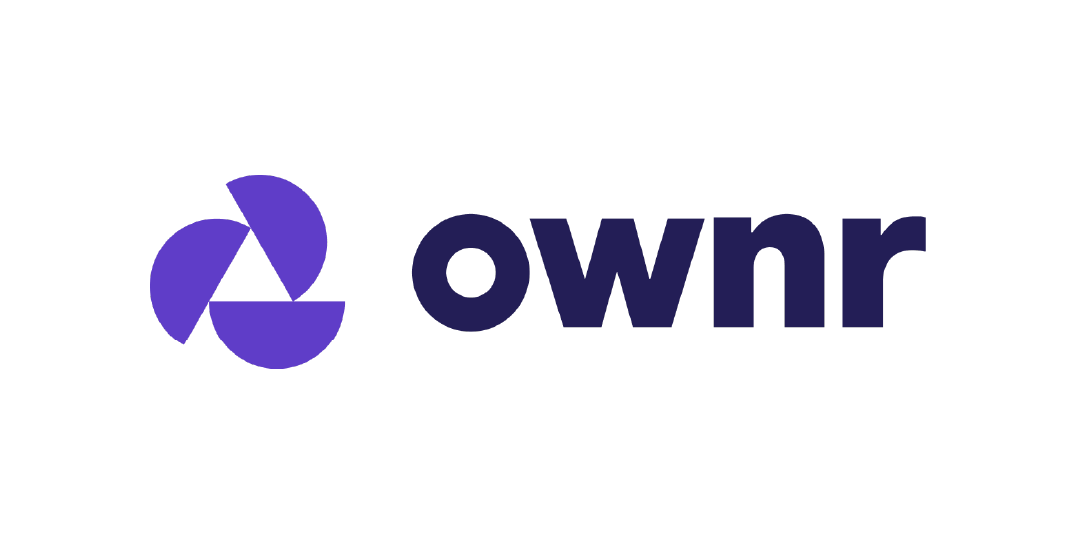GOOGLE ADS MANAGEMENT
ALL SERVICES- GRAPHIC DESIGN & BRANDING
➥ WEBSITE DESIGN TORONTO
➥ TORONTO LOGO DESIGN
➥ BROCHURE GRAPHIC DESIGN
➥ INFOGRAPHIC DESIGN
➥ BUSINESS CARD DESIGN
➥ PACKAGE DESIGN TORONTO
➥ ILLUSTRATION DESIGN
➥ ADVERTISING POSTER DESIGN
➥ BRANDING STRATEGY & SERVICES- ➤ VIEW ALL SERVICES
WEB DEVELOPMENT & SUPPORT
➥ CUSTOM WEB DESIGN TORONTO
➥ ECOMMERCE WEBSITE DESIGN TORONTO
➥ WEBSITE MAINTENANCE SERVICES
➥ SHOPIFY WEBSITE DESIGN
➥ SHOPIFY EXPERTS TORONTO
➥ WORDPRESS DEVELOPMENT
➥ WORDPRESS MAINTENANCE- ➤ VIEW ALL SERVICES
WEBSITE MARKETING & CONTENT
➥ SEO PACKAGES TORONTO
➥ TORONTO SOCIAL MEDIA AGENCY
➥ CONTENT MARKETING TORONTO
➥ PPC MANAGEMENT TORONTO
➥ AFFILIATE MARKETING CANADA
➥ STRATEGIC CONSULTATION- ➤ VIEW ALL SERVICES
ABOUT
RESOURCES- LET’S CHAT
Questions? Call us at
647-348-4995

GOOGLE ADS MANAGEMENT
ALL SERVICES- GRAPHIC DESIGN & BRANDING
➥ WEBSITE DESIGN TORONTO
➥ TORONTO LOGO DESIGN
➥ BROCHURE GRAPHIC DESIGN
➥ INFOGRAPHIC DESIGN
➥ BUSINESS CARD DESIGN
➥ PACKAGE DESIGN TORONTO
➥ ILLUSTRATION DESIGN
➥ ADVERTISING POSTER DESIGN
➥ BRANDING STRATEGY & SERVICES- ➤ VIEW ALL SERVICES
WEB DEVELOPMENT & SUPPORT
➥ CUSTOM WEB DESIGN TORONTO
➥ ECOMMERCE WEBSITE DESIGN TORONTO
➥ WEBSITE MAINTENANCE SERVICES
➥ SHOPIFY WEBSITE DESIGN
➥ SHOPIFY EXPERTS TORONTO
➥ WORDPRESS DEVELOPMENT
➥ WORDPRESS MAINTENANCE- ➤ VIEW ALL SERVICES
WEBSITE MARKETING & CONTENT
➥ SEO PACKAGES TORONTO
➥ TORONTO SOCIAL MEDIA AGENCY
➥ CONTENT MARKETING TORONTO
➥ PPC MANAGEMENT TORONTO
➥ AFFILIATE MARKETING CANADA
➥ STRATEGIC CONSULTATION- ➤ VIEW ALL SERVICES
ABOUT
RESOURCES- LET’S CHAT
Questions? Call us at
647-348-4995

GOOGLE ADS MANAGEMENT
ALL SERVICES- GRAPHIC DESIGN & BRANDING
➥ WEBSITE DESIGN TORONTO
➥ TORONTO LOGO DESIGN
➥ BROCHURE GRAPHIC DESIGN
➥ INFOGRAPHIC DESIGN
➥ BUSINESS CARD DESIGN
➥ PACKAGE DESIGN TORONTO
➥ ILLUSTRATION DESIGN
➥ ADVERTISING POSTER DESIGN
➥ BRANDING STRATEGY & SERVICES- ➤ VIEW ALL SERVICES
WEB DEVELOPMENT & SUPPORT
➥ CUSTOM WEB DESIGN TORONTO
➥ ECOMMERCE WEBSITE DESIGN TORONTO
➥ WEBSITE MAINTENANCE SERVICES
➥ SHOPIFY WEBSITE DESIGN
➥ SHOPIFY EXPERTS TORONTO
➥ WORDPRESS DEVELOPMENT
➥ WORDPRESS MAINTENANCE- ➤ VIEW ALL SERVICES
WEBSITE MARKETING & CONTENT
➥ SEO PACKAGES TORONTO
➥ TORONTO SOCIAL MEDIA AGENCY
➥ CONTENT MARKETING TORONTO
➥ PPC MANAGEMENT TORONTO
➥ AFFILIATE MARKETING CANADA
➥ STRATEGIC CONSULTATION- ➤ VIEW ALL SERVICES
ABOUT
RESOURCES- LET’S CHAT
Questions? Call us at
647-348-4995

GOOGLE ADS MANAGEMENT
ALL SERVICES- GRAPHIC DESIGN & BRANDING
➥ WEBSITE DESIGN TORONTO
➥ TORONTO LOGO DESIGN
➥ BROCHURE GRAPHIC DESIGN
➥ INFOGRAPHIC DESIGN
➥ BUSINESS CARD DESIGN
➥ PACKAGE DESIGN TORONTO
➥ ILLUSTRATION DESIGN
➥ ADVERTISING POSTER DESIGN
➥ BRANDING STRATEGY & SERVICES- ➤ VIEW ALL SERVICES
WEB DEVELOPMENT & SUPPORT
➥ CUSTOM WEB DESIGN TORONTO
➥ ECOMMERCE WEBSITE DESIGN TORONTO
➥ WEBSITE MAINTENANCE SERVICES
➥ SHOPIFY WEBSITE DESIGN
➥ SHOPIFY EXPERTS TORONTO
➥ WORDPRESS DEVELOPMENT
➥ WORDPRESS MAINTENANCE- ➤ VIEW ALL SERVICES
WEBSITE MARKETING & CONTENT
➥ SEO PACKAGES TORONTO
➥ TORONTO SOCIAL MEDIA AGENCY
➥ CONTENT MARKETING TORONTO
➥ PPC MANAGEMENT TORONTO
➥ AFFILIATE MARKETING CANADA
➥ STRATEGIC CONSULTATION- ➤ VIEW ALL SERVICES
ABOUT
RESOURCES- LET’S CHAT
Questions? Call us at
647-348-4995
![]()
![]()
![]()
- November 29, 2024
-
 Amine Rahal
Amine Rahal
As a digital marketing agency owner, I understand people’s growing reliance on AI tools like ChatGPT, Gemini, and others for creating content, especially for those that create content at scale. We can all agree that these tools are fantastic for boosting productivity, but small business clients often ask me, “Should I use AI to create content? Can AI-generated content be detected and negatively impact my marketing efforts?” The answer is possibly yes—but it’s not as simple as a straight “yes” or “no.” Let’s dive into what you need to know.
How AI Content is Detected
Based on my research into the topic, AI content detection and analysis tools like CopyLeaks or Originality.ai analyze patterns that are typical of machine-generated text. Here’s what they’re looking for:
- Predictable Language Patterns: AI models, no matter how advanced, generate text based on probabilities. While tools like ChatGPT and Gemini produce content that feels conversational and nuanced, they sometimes fall into predictable patterns that lack the variability of natural humans writing. Detection tools know how to pick up on this uniformity.
- Statistical Analysis of Word Choices: AI models tend to use high-probability word pairings. For example, phrases like “in conclusion” or “it is important to note” are more common in AI-generated text and you don’t see them often in natural human conversations. Detection tools analyze word patterns to flag text that doesn’t feel organic.
- Embedded Watermarks: This is sneaky but some AI platforms embed invisible markers in their outputs to signal that the text is AI-generated. OpenAI, for instance, has experimented with watermarking techniques that detection tools can identify.
- Repetition and Over-Reliance on Structure: AI tools sometimes overuse certain sentence structures or lack the subtlety of human creativity. This makes their outputs appear “too perfect” or overly consistent.
Tools That Can Detect AI Content
Detection tools are evolving rapidly and popping up like mushrooms all over the web, just like the AI platforms they aim to analyze. Here are some of the key players:
- CopyLeaks:
- Popular amongst digital marketing experts and bloggers. This tool analyzes the originality and likelihood of text being AI-generated. Specifically designed for ChatGPT, Claude and Gemini detection.
- Originality.AI:
- Designed specifically for content creators, it detects AI-generated text and plagiarism. A useful tool for anyone producing or verifying blog posts or web copy.
- GPTZero:
- Built for educators but increasingly adopted in business contexts. It assesses the “burstiness” and “perplexity” of text—essentially, how human-like or AI-like it is.
- Essay Grader AI:
- This tool is built for teachers and educators in order to help them grade their students’ work. It includes a built-in AI detection tool which helps teachers immediately spot students that took “the lazy route” to write their essay or paper.
- Hugging Face Models:
- Open-source models that are powerful at distinguishing AI vs. human content, particularly for larger datasets.
Where It Gets Complicated
Let me be upfront with you: detecting AI-generated content isn’t always foolproof. Here’s why:
- Human Editing Blurs the Lines: If you edit AI-generated text—adding personal anecdotes, changing sentence structures, or inserting specific details—it becomes increasingly difficult to detect. This is something we often do for clients: use AI as a starting point but refine the output to make it completely human-centric, and integrate more human stories, metaphors and the likes.
- Advanced AI Models Are Harder to Spot: AI tools like ChatGPT 4 and Gemini are incredibly advanced, producing text that mimics human behavior, tone, and voice better than ever before. Detection tools are improving, but there’s often a lag between the sophistication of new models and detection capabilities.
- False Positives: Detection tools can mistakenly flag polished, well-written human content as AI-generated. For example, a writer who structures their article clearly and uses proper grammar might inadvertently mimic the “perfection” of AI. I’ve seen many Redditors complain about this.
As a Marketer, Should You Worry?
This is a critical question I hear from clients. Here’s my take: It depends on how you’re using AI content, and whether your AI-generated content is meant for a blog, or for paid marketing strategies like Google Ads. If it’s it for the latter, it doesn’t matter if you use AI content, so long as your content is relevant to your audience and helps you generate conversions. If it’s the former, and you want to rank your content organically through SEO, you may want to “humanize” your content a bit, in my honest opinion…
- Search Engines and AI Content: Google has clarified that it doesn’t penalize content simply because it’s AI-generated. Instead, they focus on useful, high-quality content that provides value to readers. That said, poorly optimized, generic AI content can hurt your SEO performance because it doesn’t engage readers or meet user intent.
- Academic or Professional Integrity: If you’re using AI for something where originality and authenticity are paramount—like academic work or professional submissions—AI detection tools may pose a problem.
- For Blogs, Social Media, and Ads: AI can be your best friend if you’re strategic. At my agency, we often use tools like ChatGPT to draft content quickly, but we ensure every piece is refined to reflect our clients’ unique voice, expertise, and goals.
How to Avoid Detection or Stand Out
Let’s be honest: If you’re relying entirely on AI without editing or adding your unique voice, you’re taking a shortcut that could backfire one way or another. Humans can smell it, and so can search engine crawlers. Here’s how to ensure your content remains authentic and valuable:
- Refine and Personalize AI Outputs: Always add a human touch. Share personal stories, industry insights, or niche expertise that AI tools can’t replicate.
- Use AI as a Starting Point, Not the Final Draft: AI is fantastic for generating ideas, outlines, or first drafts. However, the magic happens when you fine-tune the content to make it engaging and relatable.
- Optimize for User Intent: Focus on creating content that answers your audience’s questions, solves problems, and adds real value. Whether it’s AI-assisted or human-written, high-quality content will always win.
Real-World Example from My Agency
We had a client who needed weekly blog posts for a niche legal industry. Using ChatGPT, we generated rough drafts that covered technical legal topics, but we didn’t stop there. We layered in quotes from their head lawyer, insights from the team, added authorittative and relevant internal and external links. We also added a unique tone that aligned with their law firm’s usual tone and style. The result? Search engines loved it, and their audience engaged with it, and no detection tool flagged it as AI-generated.
Final Thoughts: Should You Care About AI Detection?
Yes and no. If you’re creating high-quality, audience-focused content, it won’t matter whether it’s AI-assisted or not. Tools like ChatGPT and Gemini are incredibly powerful, but they’re just that—tools. They need your expertise, creativity, and insight to create something truly impactful.
The bottom line is this: If you’re transparent about using AI as an assistant and take the time to refine your content, you’re in a great position. But if you’re publishing AI-generated text without adding your unique touch, you might run into trouble with detection tools—and more importantly, with your audience.
Got more questions about AI in content creation? Let’s talk! As an agency owner, I’ve seen firsthand how to blend the

Tech Entrepreneur, Author, and CEO of Little Dragon Media. Passionate about entrepreneurship, philanthropy, digital marketing, blockchain, finance, investing, health fitness & nonprofits.
RECENT POSTS
- Zensurance – Good Business Policy? Read a Review From a Client…
- Top 9 Best Canadian Affiliate Marketing Programs & Offers
- Ownr – Legit or No? We Review The Company, Service & Fees
- 10 Small Business Loans & Financing Options in Ontario
- Top 11 Canadian Business Bank Accounts (Comparing Fees & Reviews)

Ready to chat about how Little Dragon Media can enhance your business?
Call us now at 647-348-4995 or

OUR AWARDS & CERTIFICATIONS






WHAT OUR CLIENTS ARE SAYING



Little Dragon Media's professionalism and commitment to delivering excellence are truly commendable. I highly recommend their services... Thank you for your stellar work!
- Delna Bharucha

Little Dragon Media worked on developing our logo and website. They did an absolutely AMAZING job on both projects. These guys ROCK and you won't be disappointed.
- Sonia Nutt

My team had a great experience working with Little Dragon Media. We will certainly engage with Little Dragon Media for any additional projects in the future. Highly recommend!
- Carly Rooney



- 682A St-Clair West Toronto, ON M6C 1B1
- (647)-348-4995
- info@littledragon.ca
MOST POPULAR SERVICES
RECENT POSTS
GET MORE CLIENTS
Don't let your competitors take over. We'll help you climb to the top and get more clients.



- 682A St-Clair West Toronto, ON M6C1B1
- (647)-348-4995
- info@littledragon.ca
MOST POPULAR SERVICES
RECENT POSTS
GET MORE CLIENTS
Don't let your competitors take over. We'll help you climb to the top and get more clients.

Contact | Press Mentions | Privacy Policy | Terms of Service
© 2024 Little Dragon Media. All Rights Reserved.






